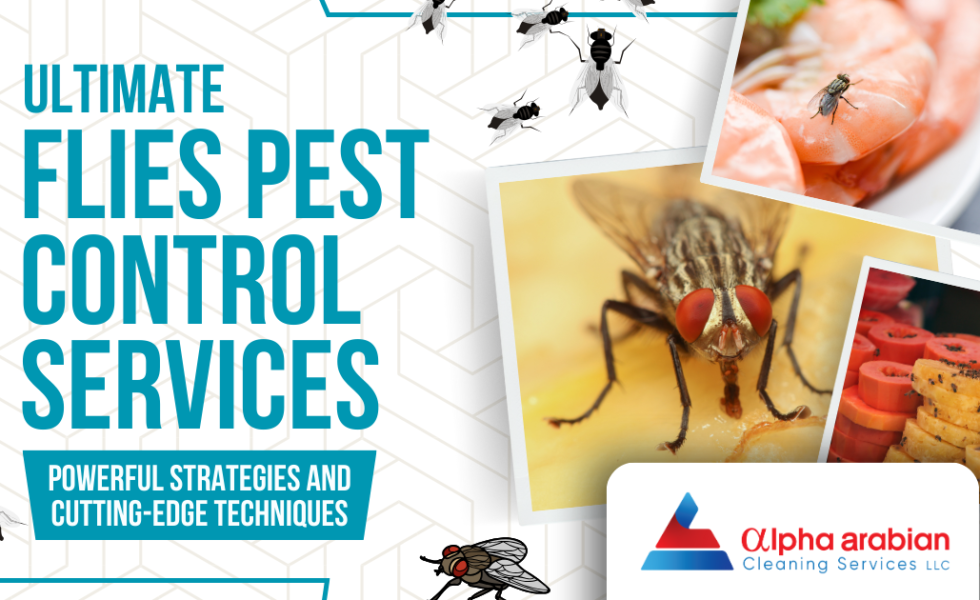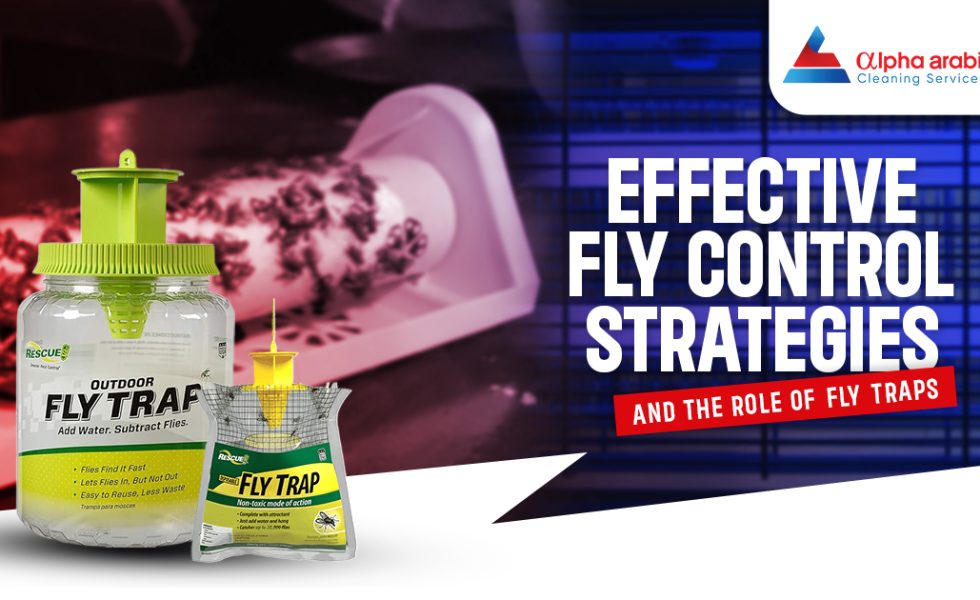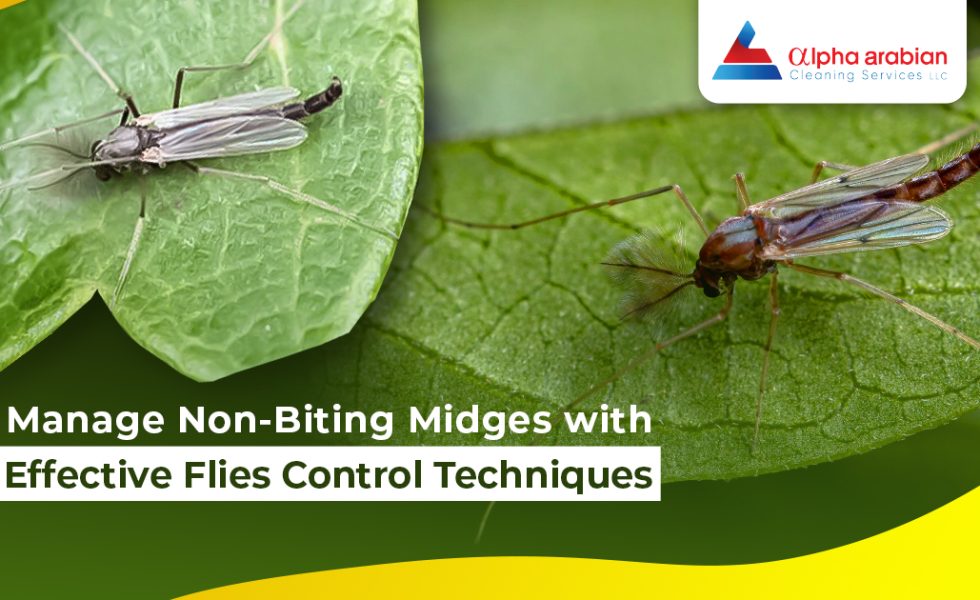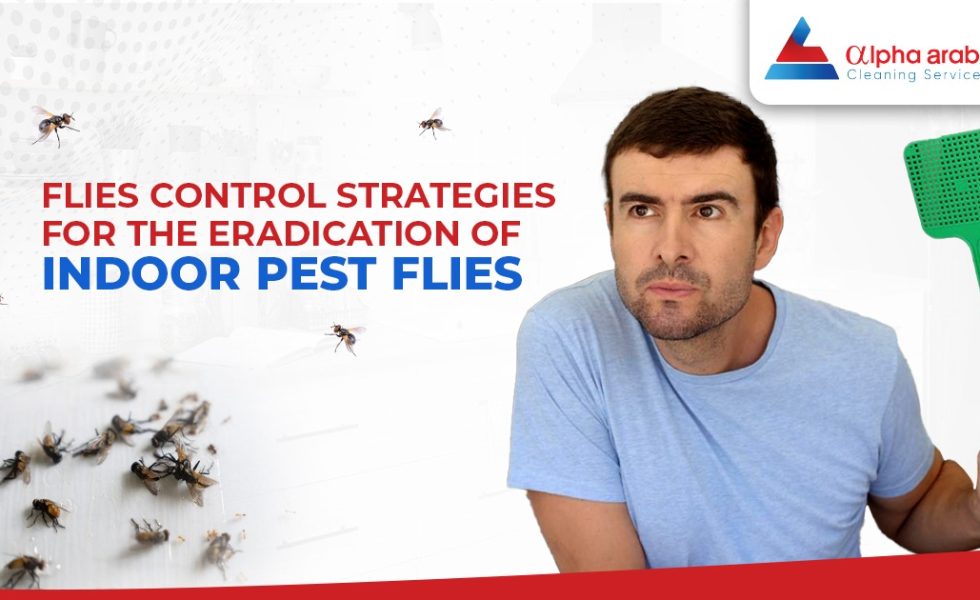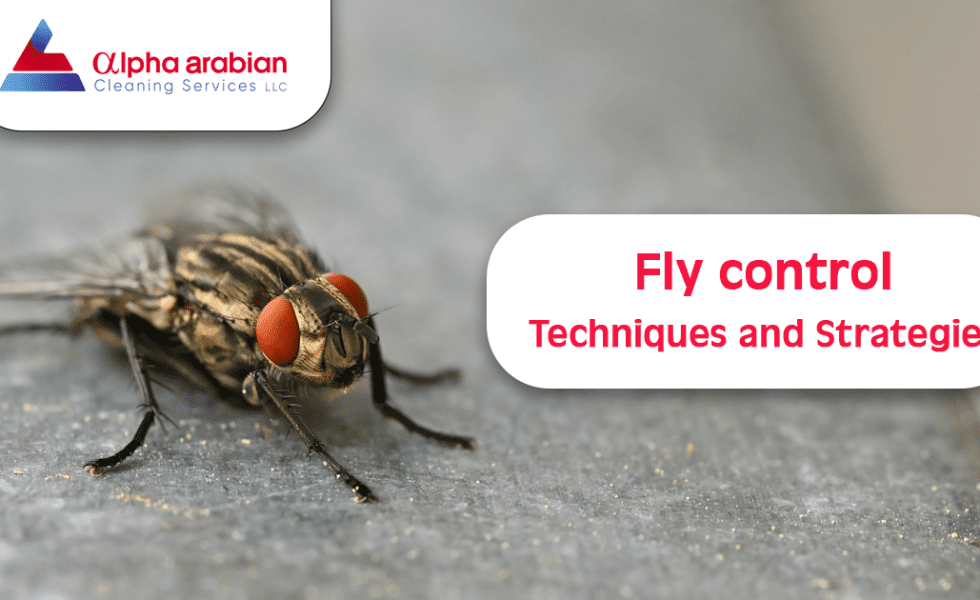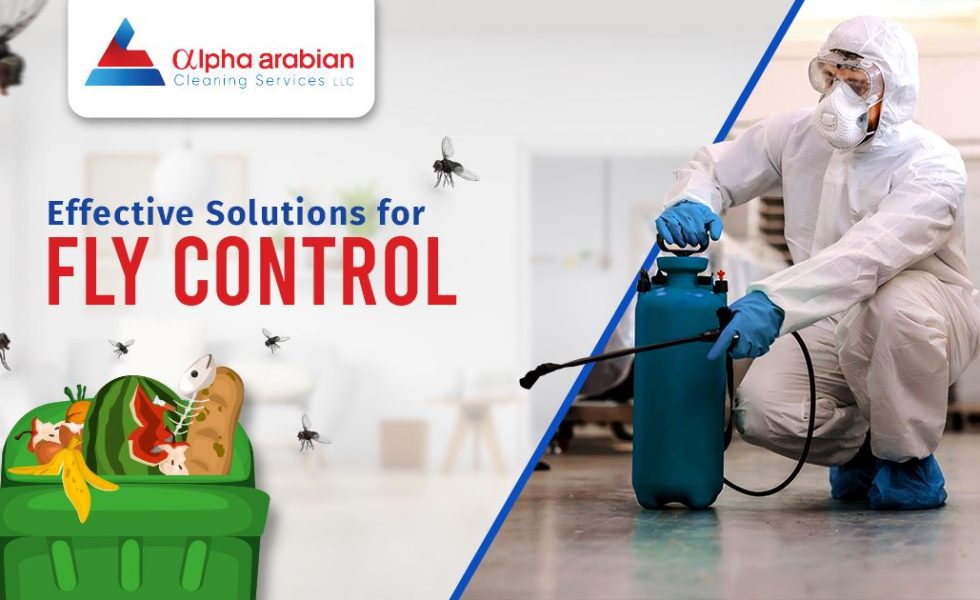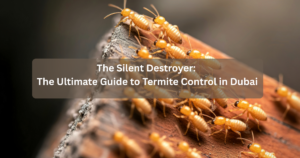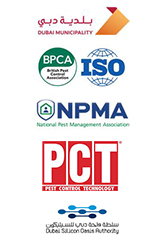Ultimate Flies Pest Control Services: Powerful Strategies and Cutting-Edge Techniques
Flies are a serious health risk, contaminating food, water, and surfaces with harmful pathogens such as Salmonella and E. coli. Addressing this issue is vital for food safety and public health. These pests can rapidly compromise the hygiene and comfort of residences, workplaces, or commercial establishments. Recognizing the potential risks that flies pose to health and hygiene is essential.
Maintaining a clean and fly-free environment calls for the use of effective tools and strategies. This article will examine effective strategies for fly control, emphasizing innovative solutions such as Fly Bottles and Electric Fly Killers.
Understanding the Threat of Flies
Flies are irritating and capable of spreading serious diseases that endanger human health. They thrive in various environments, from garbage heaps to food preparation areas, creating hazards. Flies carry harmful pathogens from decaying organic material, which can contaminate food, utensils, and surfaces, leading to illnesses like typhoid, dysentery, and gastrointestinal infections.
In addition to health risks, infestations can severely impact businesses, particularly in the food industry, leading to financial losses and damage to reputation. Recognizing the severity of the problem and taking immediate action is essential to minimize risks and protect the environment.
Signs of a Fly Infestation
Identifying early signs of a fly’s infestation is crucial to prevent it from escalating. Key signs to look out for include the sight of flies near food, trash bins, or drains, as well as groups of dark spots, which typically signal the presence of fly droppings. Additionally, maggots, particularly near organic waste, point to nearby breeding grounds.
If any of these signs are noticed, taking immediate action is essential. Swift intervention helps manage the fly’s infestation and minimizes the risk of further complications, such as bacterial contamination and structural damage. Proactively addressing these signs can protect your environment and maintain hygiene.
Traditional Fly Control Methods
Traditional fly control techniques offer temporary relief by targeting adult flies but often fail to deliver long-term solutions. The Common DIY methods include sticky traps, flypapers, and chemical sprays, which can help reduce fly populations but may pose health risks due to toxic components. Physical barriers like fly screens on windows and doors can prevent flies from entering but do not address existing infestations.
These approaches can be inadequate, especially in large-scale infestations. For sustainable and effective management, professional fly control solutions are crucial in addressing adult flies and their breeding sources, ensuring a thorough resolution to the problem.
Fly Bottles: An Effective Non-Chemical Solution
Fly Bottles offer an incredibly effective and safe solution for controlling flies, providing an eco-friendly alternative to traditional chemical methods. These ingenious devices attract pesky flies with a food-based scent, trapping them inside and keeping them from escaping. Fly Bottles stand out from sprays and insecticides due to their non-toxic nature, making them ideal for home and business use.
They are especially effective in outdoor areas like gardens or waste sites, where chemical treatments may be unsafe. Plus, they are reusable, easy to maintain, and cost-effective for ongoing fly management. By strategically placing Fly Bottles in locations prone to fly infestations, you can dramatically reduce their numbers while prioritizing the health of your environment and the well-being of your family or pets.
Electric Fly Killers: Cutting-Edge Technology for Indoor Control
Electric fly killers present an efficient solution for indoor fly management. These devices use ultraviolet (UV) light to lure flies in and quickly zap them upon contact with an electrified grid. Their effectiveness is highlighted by their quick action and hygienic design, as dead flies in the removable tray that makes disposal easy. Their effectiveness shines through in their swift action and clean design, with deceased flies conveniently collected in a removable tray for effortless disposal.
Electric fly killers are especially effective in kitchens, dining areas, and commercial spaces where maintaining hygiene is crucial. They require minimal maintenance and exhibit durability while being devoid of harmful chemicals that could compromise safety in everyday use.
Preventive Measures for Long-Term Fly Control
By adopting a proactive approach, you significantly reduce the chances of infestations while enhancing the effectiveness of advanced tools like Fly Bottles and Electric Fly Killers. Make regular cleaning a priority. Disinfect all surfaces, including countertops, and swiftly address food scraps or spills. Effective waste management is essential; use bins with tight-fitting lids and dispose of garbage regularly to eliminate potential breeding sites for flies.
Sealing entry points is equally important. Install mesh screens on doors and windows and seal any cracks or gaps to block flies from entering your space. By integrating preventive measures with cutting-edge fly control devices, you’re paving the way for a sustainable solution that ensures a comfortable, pest-free space. Take action now for a future free of flies!
Conclusion: Take Control of Your Environment
Flies may seem insignificant, but their impact on health and hygiene is significant. Innovative solutions like Fly Bottles and Electric Fly Killers are transforming fly control, offering safe and efficient options for homes and businesses. Combining proactive strategies with advanced techniques will produce the best results.
Alpha Arabian Fly Control Services delivers effective pest control methods that don’t disrupt your peace or threaten your health. Make the smart choice for effective fly control and start your path to a cleaner and healthier future!
Effective fly control strategies and the role of fly traps
Are you worrying about houseflies? Handling house flies can be a major challenge for homeowners everywhere. These stubborn pests are found especially, when there’s food present inside or outside the house. Even though they don’t bite, they pose significant health issues and spread diseases like typhoid, fever, dysentery, tuberculosis, leprosy, and cholera. The house flies is that they collect bacteria from rotting materials like garbage and dead particles. The dreadful bacteria transfer to the food items, which makes them a threat to both pets and humans. If your home provides a haven for these flies with decomposing organic materials, poor sanitation, delayed garbage disposal, or unattended spills, they’ll happily set up camp.
To tackle this problem, knowing the significance of good fly control is important. A straightforward and effective answer is using fly control techniques and fly traps. These traps act as bait, luring and trapping house flies, preventing them from spreading bacteria. Implementing fly control techniques is essential for quick and effective results.
The initial move in controlling flies is maintaining a clean and hygienic space. Frequently emptying the trash, quickly cleaning up spills, and consistently managing pet waste can greatly decrease the appeal of your surroundings to house flies. Placing fly traps strategically in spots susceptible to fly problems can add another level of protection.
For those facing a severe fly infestation, seek a help from professional pest control service in Dubai. Pest control services in Dubai offer specialized solutions to tackle fly infestation efficiently. Their expertise and professional-grade products can help eliminate the problem, safeguarding your home and family from the health risks associated with house flies.
What are house flies?
House flies are annoying pests that come into homes when there’s rotting stuff around. They are black or dark grey with lines on their body, and their babies are squiggly, slimy maggots turning into dark brown, round pupae. To stop them, adopt fly traps and fly control techniques. The lifespan of these flies is 2 to 4 weeks, influenced by climate and food availability. Additionally, these flies fly up to 20 miles in one go.
Identification of House Flies:
House flies are little bugs with a greyish colour and black stripes on their thorax. They have big compound eyes and are famous for their quick-flying abilities. Mostly, they are found near trash cans, dirty diapers, rotting fruits and vegetables, garbage, and damp organic materials.
Indoor fly control techniques:
To inspect any activities inside, focus on potential breeding areas such as trash cans and areas with decomposing organic matter. Regularly cleaning can help to reduce breeding opportunities. Check for cracks around windows, doors, and vents, which are the main entry points. Identifying and eliminating indoor breeding sources is crucial for effective control.
Outdoor fly control techniques:
House flies are breeding in locations like fresh manure, rotting fruits, vegetables, and damp garbage. It’s important to inspect these areas and take proactive measures from pest control services in Dubai to eliminate or manage breeding sites. In rural areas with farms, the number of breeding sites may be higher, making it essential to address these areas for effective fly control.
How to get rid of flies from your premises?
Prepare Your Home with Proper Sanitation
Before diving into any products, the first step is to prepare your home with proper sanitation methods. Start by cleaning your living space thoroughly. Wipe countertops, mop, and vacuum to eliminate spills or food crumbs that might attract flies. Check around appliances for spills and dispose of any food left on counters.
Regularly empty and clean your garbage cans, both indoors and outdoors, ensuring there are no spills at the bottom. Seal food items in plastic containers to avoid attracting flies. If you have pets, clean litter boxes and promptly pick up pet waste to prevent additional fly attraction.
Capture Lingering Flies with Fly Traps
Even after a thorough cleanup, some flies may linger. This is where fly traps become valuable. Fly traps attract house flies to a glue-filled trap, which can be highly effective. Simply place the trap in areas where fly activity is observed.
For larger spaces like warehouses and commercial buildings, the Fly light is a recommended solution, while the lights on this product attract flies, a glue board inside the light catches and traps them, leading to their eventual demise.
Addressing Drain Infestations
Flies find constant moisture in drains to be an ideal breeding ground. To check for flies in a drain, cover the drain entrance with clear tape and leave a small gap for airflow. Periodically check the tape for flies sticking to it, indicating the size of the fly infestation.
Cleaning the drain is crucial to eliminating the fly infestation. Using a cleaning brush with boiling water or a solution of baking soda, salt, and vinegar can effectively remove debris and bacteria.
Setting Up Flytraps with the help of pest control service in Dubai
Various types of fly traps are available, adopt diverse methods from pest control service in Dubai to combat fly infestation. There are many options including light traps using ultraviolet light, traps with a low-voltage electrical current, bait traps with sweet scents, and devices utilizing pheromones.
Trying Fly Sprays or Insecticides
While sprays and insecticides can eliminate individual flies, they are not always the most efficient for large infestations. However, it provides a temporary solution and should be used cautiously to avoid skin or eye irritation.
Mechanical Control
Mechanical control methods involve killing or capturing flies without chemicals. Fly swatters, sticky flypapers with odour attractants, bait traps with various food items, and UV light traps are examples. It’s essential to place UV light traps properly, away from competing light sources and food preparation areas.
Chemical Control
Chemical control is considered due to the increasing resistance among flies to insecticides. For instance, spraying the residual insecticide around the potential entry points or releasing the fly strip insecticide in unoccupied rooms. Always use pesticides with caution, following label instructions carefully.
How to deter flies from your porch?
To keep flies away from your porch, use natural methods like planting herbs and flowers such as basil or marigolds. Consider Venus flytraps and sticky traps as fly control techniques. Applying outdoor insecticides, though flies may become resistant, is an option. Use residual pesticides around your house as they remain active longer. For persistent fly infestations, seek professional help from pest control services in Dubai, they are pest control experts. These simple steps help create a fly-free environment around your porch.
How to manage Non-Biting Midges with effective Flies Control Techniques
Non-biting midges, scientifically known as Chironomids, often mistaken for mosquitoes, can be a significant source of annoyance in Dubai. They frequently appear in great swarms around lakes, ponds, homes, and lights, disrupting daily life. Unlike mosquitoes, these tiny two-winged flies do not possess the ability to bite, making them essentially harmless to humans. In this blog post, we will explore effective Flies control techniques in Dubai, including misting treatment, spray treatment, and mosquito control treatment to help you manage non-biting midges.
Chironomids breed in water, both fresh and polluted. They primarily feed on the bottom debris of lakes, ponds, and effluent tanks of sewage treatment plants. Certain organisms multiply quickly in dirt and organic water with a high organic content. In such conditions, the bottom of water bodies can contain hundreds of thousands of larvae per square meter. The larvae are often green or red due to the presence of hemoglobin in their bodies, earning them the name “blood worms.”
Effects and Nuisances Caused by Non-Biting Midges
While non-biting midges are not a significant medical concern, their presence can lead to various nuisances. When these insects die in large numbers, dust and fragments of their dry bodies can trigger allergic responses in susceptible individuals, particularly in places like sewage works. Their excreta can ruin clothes left out to dry and deface buildings with the black spots they leave on painted walls, doors, and windows. Their swarming behaviour at dusk around bright lights can disrupt waterside recreational activities.
Effective Flies Control Techniques in Dubai
To manage non-biting midges effectively, consider the following Flies control techniques:
- Introduce Fish: Consider introducing fish to lakes and ponds as natural predators to control midge larvae. Fish, such as koi or goldfish, can help keep the midge population in check.
- Misting Treatment: Misting treatment is an eco-friendly approach that involves a misting system to disperse insecticides in affected areas. This method is highly effective in controlling non-biting midges without causing harm to the environment.
- : For localized infestations, spray treatment can be applied directly to the affected areas, such as around lights and breeding sites, to control midges.
- Mosquito Control Treatment: Non-biting midges often share habitats with mosquitoes. Opting for mosquito control treatment in Dubai can help address both issues simultaneously, ensuring comprehensive pest management.
Alpha Arabian Pest Control Service in Dubai
In Dubai, Alpha Arabian Pest Control Service is your trusted partner for managing non-biting midges and other pests. We provide thorough and effective pest control services for your home or business, ensuring a pest-free environment.
By partnering with Alpha Arabian Pest Control Service, you can address pest concerns efficiently and enjoy a pest-free environment in this vibrant city. Don’t let non-biting midges disrupt your daily life – take effective Flies Control Techniques and require a strategic approach that includes misting treatment, spray treatment, and mosquito control treatment to maintain a comfortable living space in Dubai.
Flies control strategies for the eradication of Indoor Pest Flies.
Indoor pest flies can be a persistent annoyance, infiltrating homes and establishments, but understanding their behavior and implementing smart fly control strategies can make a significant difference. There are several types of indoor pest flies that are annoying to humans like owl Midges , or Drain Flies, Phorid Flies, and Fruit Flies. Note down the characteristics and practical ways to manage their populations.
Owl Midge or Drain Fly: Owl Midges, with their moth-like appearance, measure a mere 2-4mm. Their nocturnal habits draw them to indoor lights, leading them to establish egg-laying sites in kitchens and bathrooms. The breeding ground for their larvae is often the gelatinous deposits along drains, and their sudden appearance might indicate plumbing issues. While they can carry pathogens, they’re not drawn to food. Fortunately, pesticides are rarely needed; disconnecting drains and eliminating breeding sites suffices.
Phorid Fly or Scuttle Fly: Phorid Flies, at 3mm, are known for their jerky movements. Breeding in moist decaying organic matter, they can infest a range of spaces from medical facilities to kitchens. The filth they’re associated with makes them potential carriers of pathogens into food. Residual insecticides are rarely required; the key is locating and eradicating breeding sites, even in unexpected areas like laboratory cultures.
Fruit Fly: Fruit Flies, recognizable by their red eyes, measure 3mm and breed in fermenting materials. Their presence in domestic spaces can signal unattended residues in milk bottles or overripe fruits. These flies, too, can be problematic in industrial settings such as canning factories. Since they breed in unsanitary areas, they pose a risk of carrying pathogens onto food. Eradicating breeding sites and efficient fly control strategies is pivotal, with insect light traps aiding in capturing adult flies.
Effective fly control strategies:
Sanitation: Maintaining a clean environment by regularly cleaning drains, eliminating decaying matter, and promptly discarding overripe fruits.
Breeding Site Elimination: Regularly inspect and clean drains, sink edges, garbage bins, and other potential breeding spots.
Hygiene Practices: Maintain good hygiene in kitchens, bathrooms, and other susceptible areas to discourage fly infestations.
Structural Repairs: Address leaks, plumbing issues, and cracks that might contribute to moisture-rich breeding sites.
Insect Light Traps: Use traps strategically to attract and capture adult flies, aiding in population control.
Professional Pest Management services: In severe infestations, consider seeking the assistance of pest management services in dubai for effective and targeted control.
When to call a professional pest management services?
If you are exhausted with indoor pest flies, effective pest management services in dubai involve a multi-pronged approach that focuses on. Understanding the behaviors and characteristics of the indoor pest flies enables homeowners and businesses to implement smart fly control strategies, reducing the nuisance and potential risks associated with these tiny yet bothersome pests.
Fly control techniques and strategies
Maintaining a fly-free environment is essential for good hygiene and comfort, especially in a bustling city like Dubai. Effective pest control requires diligent monitoring, targeted strategies, and professional fly control services. By opting fly control techniques is the ultimate solution for the complete elimination of flies from your home and business space. The fly activity becomes a huge problem during the winter season for those who stay near the riverside. They sit on contaminated areas like rotting corpses and rotting foods, they spread various types of infectious diseases like cholera. But we know how to control fly infection.
In this blog, Let’s find out effective fly trap measures and the significance of fly infestation services.
- Counts: Stand and count the number of flies landing on various surfaces such as walls, food troughs, livestock, vehicles, refuse bins, and more, during a designated time frame. Consider using the scudder grill, a grid of white-painted wooden strips, placed in areas attractive to flies.
- Resting Places: Flies typically rest above head height at night, leaving behind visible fecal marks. Include a thorough search for evidence of fly resting places in your survey.
- Traps: Utilize different types of fly traps, including bottle traps, sticky traps, and electrocuting traps, to gain insights into the nature of the fly problem and the effectiveness of control efforts. Don’t forget to check window ledges for fly corpses as closed windows inadvertently act as traps.
- Breeding Sites: Unpleasant but necessary, conduct a careful search for likely breeding sites, focusing on areas where fly larvae and pupae may be present.
Follow the fly control strategies to effectively control flies:
- Public Education: Public awareness is important for a healthy environment. Fly infestation services provide awareness to the public about the importance of fly control techniques for proper cleanliness and waste management practices to minimize fly infestations.
- Infrastructure Development: Improve drainage systems, refuse disposal mechanisms, and animal waste management infrastructure to reduce fly breeding opportunities.
- Local Habitat Modification: The fly infestation services makes necessary modifications to local habitats to discourage flies. Remove stagnant water sources and ensure proper sanitation practices in livestock areas.
- Conventional Insecticides as Larvicides: Apply approved insecticides specifically targeted at fly larvae to disrupt their life cycle effectively.
- Space Treatments: The fly infestation experts provide fly control strategies to employ space treatments, such as aerosols or misting systems, to control adult flies in larger areas like public spaces, commercial buildings, and residential complexes.
- Insect Growth Regulators as Larvicides: Employs insect growth regulators to impede fly development and reproduction.
Address the fly nuisance issues with the following measures:
- Space Treatments: Deploys appropriate fly control techniques for the management of fly populations in specific areas, ensuring a comfortable environment.
- Use of Toxic Baits: Follow fly control strategies and employs targeted toxic baits to attract and eliminate flies effectively.
- Application of Residual Insecticides: The fly trap services in Dubai take proactive steps for the removal of fly infestation; they apply residual insecticides on adult resting surfaces to reduce fly populations.
- Use of fly Trap: The fly infestation services Implement fly trap such as pheromone traps and sticky traps to capture and monitor fly activity.
Steps to protect buildings from fly infestations:
- Habitat Modifications: Apply fly control techniques to the building’s surroundings, for minimizing the potential of fly breeding sites.
- Screening of Doors/Windows: On the other hand, the fly trap services need to install screens on doors and windows to prevent flies from entering indoor spaces.
- Strip Curtains at Doorways: However, the professionals follow fly control strategies and apply insecticide at the entrances of the doorways to create a barrier against flies while maintaining accessibility.
- Self-Closing Doors: Install self-closing doors to minimize the entry points for flies.
- Air Curtains: Implement air curtains near entrances to create an airflow barrier, preventing flies from entering.
- Use of fly Trap: Utilize pheromone traps, sticky traps, or other effective traps near fly-prone areas.
- Use of Insecticide-Impregnated Strings: Moreover, the pest control services employ insecticide-impregnated strings as additional fly resting sites to control their populations.
Summing Up
Effective pest control requires meticulous monitoring, targeted strategies, and professional pest control services. By implementing comprehensive fly control strategies with professional fly control services in Dubai will remove the infected files completely. For optimal results and peace of mind, rely on reliable pest control services in Dubai to tackle fly infestations promptly and effectively.
Effective Solutions for fly control
For healthy living, it is essential to eradicate contaminants from your premises. Flies can be a nuisance and a potential health hazard, especially in densely populated areas like Dubai. Effective space treatment methods are crucial for controlling fly populations and maintaining a clean and hygienic environment. Alpha Arabian is one of the leading pest control services in Dubai providing quality fly control service across the UAE.
Let’s Find out some efficient techniques and considerations for fly control service in Dubai.
Treatment Areas: When calculating the dosage rates of controlling flies in Dubai, the manufacturers typically consider a driveline of 200 meters and a swath width of 50 meters per hectare. However, some superior products may have an effective range of 75 to 100 meters downwind from the driveline. It’s important to note that vegetation, walls, fences, and buildings can reduce the efficacy of treatments by blocking the drift of chemical droplets.
Wind Speed: Wind speed plays a crucial role in space treatments for flies control in Dubai. Ideally, The speed of the wind is 2 to 10 km/hour. Lower wind speeds allow the pesticide’s cloud to remain closer to the ground, increasing its effectiveness. Conversely, high wind speeds may disperse the chemical droplets too quickly, reducing their efficacy.
Temperature: Temperature also affects the effectiveness of space treatments. Most flying insects, including flies, tend to avoid flying during the heat of a tropical day and seek shelter in vegetation or buildings. Therefore, space treatments are arranged during inversion conditions, such as dawn or dusk, when the temperature is relatively cooler. Inversion conditions help maintain a layer of cool air close to the ground, where the pesticide cloud remains concentrated.
Active Ingredient: Advanced pyrethroids are commonly used active ingredients for fly control service. Surprisingly, these chemicals require low application rates, typically around 1-2 units of active ingredient per hectare. In thermal fog operations, the most visible substance is the diluent, as the active ingredient is present in minimal quantities.
Diluents: The most commonly used diluents of pest control services in Dubai for flies control are kerosene/diesel and water. Diesel itself has a degree of toxicity for flying insects. However, it also protects machinery from corrosion. One drawback is that diesel-based treatments can leave a sticky residue that traps dust and can be messy. On the other hand, water is a cheap and environmentally friendly diluent. Without an evaporation retardant or specialist formulation, water-based droplets rapidly evaporate. Corrosion of metal formulation tanks and feed tubes may occur, so it’s important to filter out grit and debris from the water used.
ULV/Thermal Fog: Our pest control services in Dubai uses two commonly employed methods for space treatments are ULV and thermal fog applications. ULV generates droplets of approximately 20-30 microns in size, while thermal fog produces smaller droplets ranging from 1-10 microns. The application rate for ULV (vehicle-mounted) is approximately 0.5 liters per hectare, while for thermal fog, it is around 5 liters per hectare.
Safety: The expert technicians of pest control services in Dubai conducting space treatments for control of flies. The primary concern is safety. Avoid prolonged contact with the pesticide cloud. Avoid space treatments applied in areas where people, especially children, are present. It’s crucial to exclude honey bees from these control measures to protect their population in Dubai.
Final Thought About Flies control Service
Efficient space treatment methods are essential for effective flies control in Dubai. By considering factors such as treatment areas, wind speed, temperature, active ingredients, diluents, application methods, and safety precautions, Alpha Arabian fly control service can ensure a clean and hygienic environment, free from flies and their associated problems.
